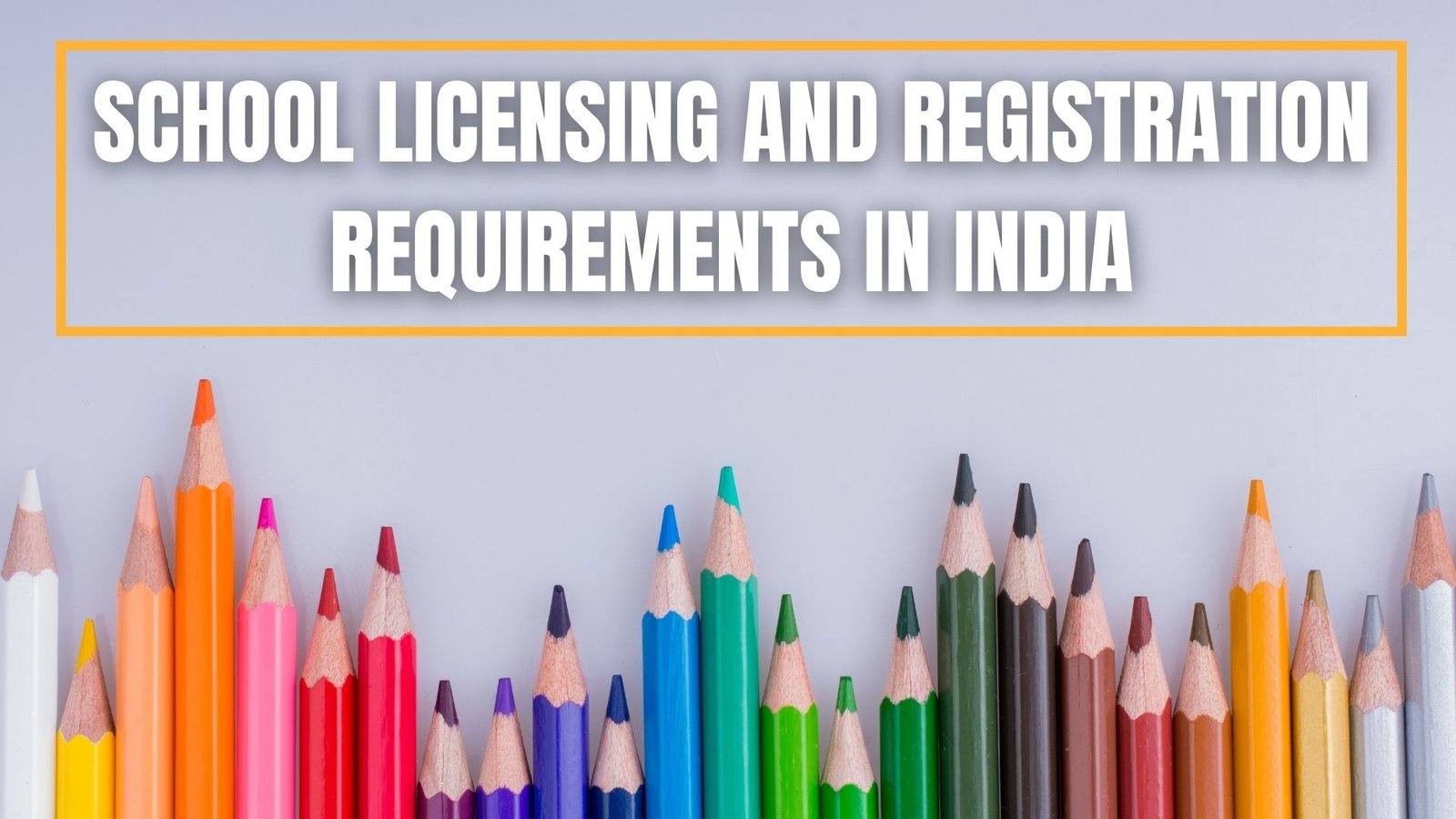On this page you will read detailed information about Requirements For Coaching Centre Licensing and Registration in India.
As you consider opening a coaching centre in India, you must understand the legal requirements for licensing and registration to operate legally. This overview addresses key details you need to know, including types of centre needing certification, application processes, required documentation, renewal policies, and penalties for noncompliance. Understanding these norms at the outset enables you to plan accordingly as you work to establish your business.
Overview of Coaching Centre Licensing in India
In India, coaching centre and private tuition classes must comply with certain regulations and obtain the proper licenses or registrations from the appropriate local or state authorities. This helps ensure standards of quality, safety, and fair practices. Generally, the key requirements involve:
- Registration – Most states require coaching institutes and private tutors providing academic instruction to register with the designated regulatory body. This involves submitting details about institute ownership, infrastructure, courses offered, staff qualifications, fee structure and more.
- Infrastructure – Coaching centre must meet stipulated infrastructure norms regarding sufficient classroom size, ventilation, furniture, lab equipment (if applicable), safety, hygiene and sanitation facilities. Periodic inspections help verify standards.
- Certification – In some states, coaching institutes must acquire certification from government-approved academic bodies regarding their course curriculum, teaching practices and learning outcomes. This aims to uphold education quality.
- Fee Regulation – To prevent unfair fee hikes or profiteering, states often issue guidance or directives regarding permissible fee structures, refund policies and display of full fee details. Strict action occurs for violations.
- Teacher Requirements – Most states mandate verification of teaching staff qualifications, expertise and screening measures as part of the affiliation or licensing process. Minimum criteria may apply regarding degrees, credentials, experience, aptitude tests and police verification formalities.
Complying with local coaching centre laws helps provide transparency for students, prevents malpractices, and upholds standards – leading to better outcomes. Responsible institutes should proactively fulfill all licensing stipulations applicable in their state or district.
Key Registration Requirements for Coaching Centre
To operate legally, coaching centre in India must comply with certain norms and obtain the necessary registrations and licenses. This ensures they meet quality standards for infrastructure, facilities, safety, hygiene and teaching practices.
- Registration – Coaching institutes must register with the state education department or affiliated regulatory body. Registration norms vary across states but generally include:
- Details like ownership, courses offered, staff qualifications, fee structure
- Affidavit declaring compliance with regulations
- Processing fee
- Infrastructure – Coaching centre must have adequate seating capacity, proper ventilation, lighting, fans, drinking water, functional restrooms separate for boys and girls. Required amenities also include first aid kits, fire safety equipment and wheelchair access.
- Certifications and Permits – Depending on the state, institutes may need to obtain a shop establishment license, GST registration, trade license and No Objection Certificate (NOC) from municipal authorities.
- Safety and Hygiene – Regular pest control, waste disposal protocols and maintenance of cleanliness in premises is mandated. Some states also require certificates related to electrical safety, pollution control and adherence to labor laws.
- Teaching Standards – Student-teacher ratio should be not more than 30:1 as per regulations. Faculty must have relevant academic qualifications and teaching experience.
By satisfying these key requirements, coaching centre can operate legally while also providing a higher quality learning environment for students. Authorities conduct periodic assessments, so staying compliant is essential.
Important Compliance Norms for Coaching Centre
When running a coaching centre in India, it is crucial to be aware of and comply with certain norms and regulations stipulated by the government. This ensures the ethical and lawful operation of your business.
- Registration and Licensing – Coaching centre are mandated to register with the appropriate state education board and obtain necessary licenses to operate legally. This involves submitting required paperwork, certificates, paying fees, etc. as stipulated by the government authority. Failure to do so can lead to penalties.
- Safety and Infrastructure Norms – There are prescribed standards related to the institute’s infrastructure and facilities including adequate seating capacity, ventilation, drinking water, hygiene, etc. Regular safety audits and checks need to be conducted as well.
- Qualified Faculty – Teachers at coaching centre are required to have certain prescribed qualifications and teaching experience in their domain areas. Their credentials must be verified and maintained on record.
- Fee Regulation – Most states have rules regarding the fee structure and fee hikes permitted in a year. Price lists must be publicly displayed and receipts issued to students.
- Code of Conduct – Coaching centre have to formulate a fair code of conduct policy for management, faculty and students covering discipline, grievance redressal, non-discrimination, etc.
By understanding and adhering to these key compliances, coaching institutes can operate successfully in a professional and ethical environment. It builds confidence and trust among students while avoiding legal hassles. Hence complying with regulations must be an integral part of your centre’s strategy and processes.
Renewal and Inspection Processes for Coaching Centre
- Renewal Application: Coaching centre need to renew their registration annually before the expiration date. Submit a renewal form along with the fee 2 months prior to expiration. Provide details on any changes to infrastructure, facilities, courses, or staff since last renewal.
- Inspections: Authorized inspecting officers may visit coaching institutes once a year or when investigating public complaints to check for compliance. Inspections evaluate:
- Safety standards as per building codes and fire safety norms
- Cleanliness and hygiene
- Quality of teaching facilities, labs, libraries etc.
- Credentials and qualifications of teaching staff
- Possible Outcomes: If deficiencies are noted during inspection, centre may be issued:
- A notice to rectify issues within set timeframe
- Monetary penalty
- Suspension of registration
- Cancellation of license in case of gross, repeated violations
- Display of Certificate: The registration certificate with validity dates must be prominently exhibited at the coaching centre at all times. Renewed certificates must be displayed after annual renewals.
- Changes to Notify: Coaching centre need to promptly inform authorities regarding any changes to ownership, name of institute, address, courses offered etc. Approval should be sought before implementing major changes to infrastructure or layout.
By being aware of renewal, inspection and compliance processes, coaching centre can avoid disruptions to operations through timely renewals, preventive checks and prompt resolutions in case of notices. Maintaining positive relations with inspecting bodies also builds goodwill.
In the previous post, we had shared information about School Licensing and Registration Requirements in India, so read that post also.
FAQs on Coaching Centre Licensing and Registration
Coaching centre in India need to comply with certain rules and regulations around licensing and registration. Here are answers to some frequently asked questions:
1. All coaching institutes, tutorial homes and training centers are required to register under the respective State and Union Territory laws. This is mandated by the Ministry of Human Resource Development (MHRD).
2. The coaching center needs to obtain a valid license or certificate of registration from the designated registering authority before starting operations. This varies across different states.
I) The license is provided by the regional education regulatory bodies or district education officers as per the State laws. For example, in Delhi it is issued by the Directorate of Education.
II) Registration needs to be renewed annually in most cases. The certificate specifies the validity period.
I) The coaching institute needs to have qualified teachers and instructors for the subjects they offer coaching in.
II) It should have the required infrastructure in terms of classrooms, learning aids, restrooms, drinking water, safety equipment etc.
III) Relevant certificates, documents and fees must be submitted along with the application forms to the registering authority.
IV) The premises should adhere to the State’s safety and hygiene norms. Periodic inspections may be carried out.
I) You can cross check a coaching center’s license status and validity directly with the registering body.
II) Reputed institutes display certification details prominently.
III) Checking for affiliation with coaching federations can also help validate credentials.
Conclusion
To summarize, the requirements for coaching centre licensing and registration in India aim to improve industry standards and ensure student safety. By complying with guidelines on infrastructure, instructor qualifications, fees, and operations, you demonstrate a commitment to quality education. As the regulatory environment continues to evolve, stay informed on policies in your state and region. Approach regulators as partners invested in the same goal of empowering students. With diligence, patience, and care for your students’ wellbeing, you can meet registration requirements while retaining your coaching centre’s mission and values. Consider the licensing process an opportunity to formalize best practices that will allow your institution to thrive.
Disclaimer
The information and services on this website are not intended to and shall not be used as legal advice. You should consult a Legal Professional for any legal or solicited advice. While we have good faith and our own independent research to every information listed on the website and do our best to ensure that the data provided is accurate. However, we do not guarantee the information provided is accurate and make no representation or warranty of any kind, express or implied, regarding the accuracy, adequacy, validity, reliability, availability, or completeness of any information on the Site. UNDER NO CIRCUMSTANCES SHALL WE HAVE ANY LIABILITY TO YOU FOR ANY LOSS OR DAMAGE OF ANY KIND INCURRED AS A RESULT OR RELIANCE ON ANY INFORMATION PROVIDED ON THE SITE. YOUR USE OF THE SITE AND YOUR RELIANCE ON ANY INFORMATION ON THE SITE IS SOLELY AT YOUR OWN RISK. Comments on this website are the sole responsibility of their writers so the accuracy, completeness, veracity, honesty, factuality and politeness of comments are not guaranteed.
So friends, today we talked about Requirements for Coaching Centre, hope you liked our post.
If you liked the information about Requirements for Coaching Centre, then definitely share this article with your friends.
Knowing about laws can make you feel super smart ! If you find value in the content you may consider joining our not for profit Legal Community ! You can ask unlimited questions on WhatsApp








